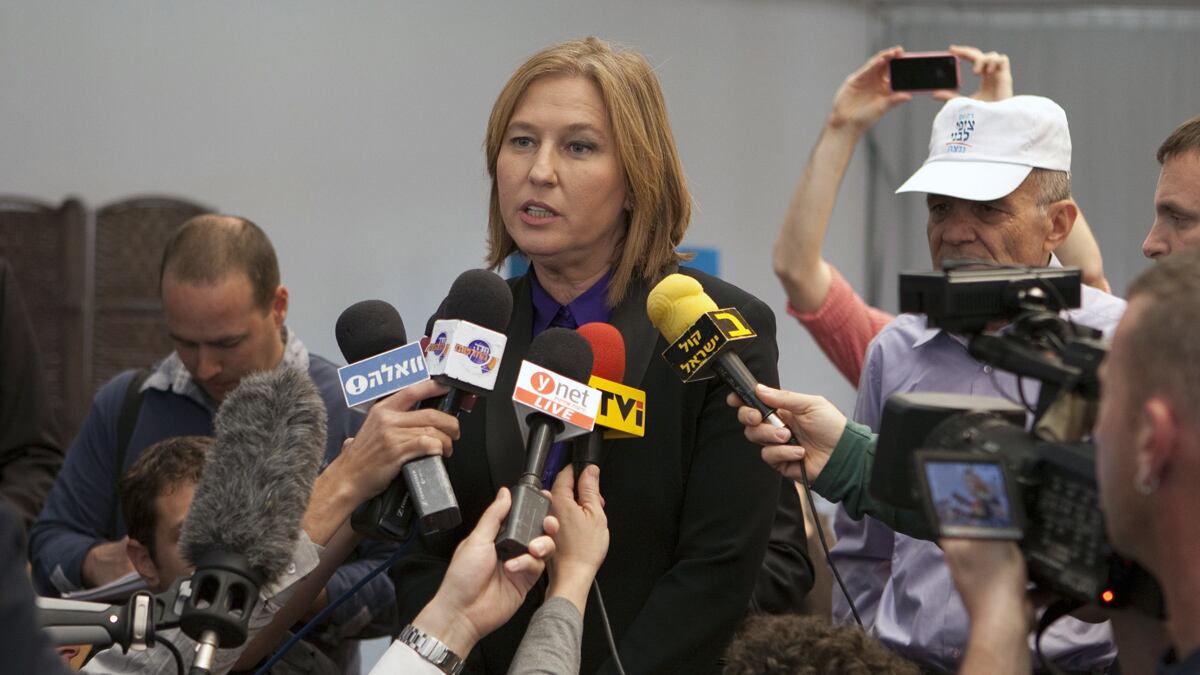The rumors are finally beginning to give way to actual events. Tzipi Livni and her party, HaTnuah (The Movement), became the first to sign a coalition agreement with Benjamin Netanyahu. All in all, I’d say Livni did very well out of the deal. And it pries the door to progress on the peace front a little wider. The biggest question is whether she’ll have the authority and freedom to do much.

According to the deal, Livni will become Justice Minister, and thus a member of the cabinet. But she’s also been given charge of peace talks with the Palestinians, subject only to Netanyahu’s authority. As such, she’s now also included in an inner ministerial committee on the peace process composed of the Prime Minister, Defense Minister, and Foreign Minister. A second MK, Amir Peretz, will also be a Minister (of Environmental Protection) and a third, Amram Mitzna, will chair the Knesset House Committee.
As I said, this was a pretty good deal for Livni. She got exactly what she wanted, not only in terms of focusing on relations with the Palestinians but also in terms of her own relevance. I’ve argued before that she made a mistake by forming her own party: it won’t last much past the next election, and without a strong base of support she’d be subject to the behavior of the stronger parties around her. This is what she needed in order to remain a player. Had she not gone into the coalition and gotten something near the center of power, she would have quickly faded into irrelevance.
I’ve also argued that the election provides an opportunity to advance the peace process. Bibi’s a pragmatist and an opportunist, and he can be pushed toward a concrete realization of the two-state solution, however slowly and reluctantly. Shas, Yesh Atid, Livni, Labor, Meretz—they all did well or better in the election, and though not all of them are aggressive about the peace process (an understatement when it comes to Labor’s Shelly Yachimovich) or will join the coalition, it’s a growing critical mass that adds domestic pressure on the government. Finally, Barack Obama seems interested in moving forward on the peace front, as well, and he can provide external pressure on Netanyahu should he choose.
With Livni in the government, and specifically in charge of this issue, she’ll push hard on it. She’s still a right-winger, though, and we know from the Palestine Papers that she also hesitates when an opportunity for real change comes.
More importantly, she’ll be constrained by having to report back to Netanyahu and have him judge whether to move forward with any of her proposals or negotiating successes. His decisions will be based partly on what he thinks would come out of any agreement, but also on party and coalition politics.
In short, the deal is good for Livni and good for peace. But it’s also good for Netanyahu: Livni brings the coalition a little more to the center—rather than the far-right government many feared but that even Netanyahu wants to avoid—and provides a little more stability with her six MKs. He can also now tell the world that he’s truly interested in peace, because he’s given someone who focused her entire campaign on the issue the file. Justice isn’t an insignificant ministry, and Livni is a capable manager when she wants to be: she can also make a difference on social-legal issues, which would address some of the concerns Israelis highlighted during the vote.
Much will depend on the rest of the coalition, what the U.S. does, what the Palestinians do, and so on. But I’d conclude that so far, one has the right to continue to be cautiously optimistic.






